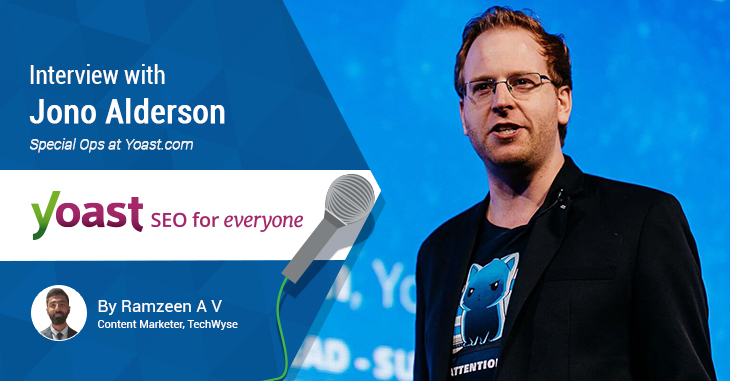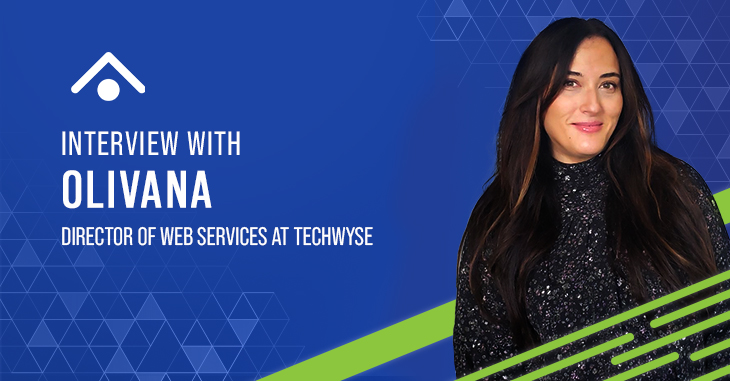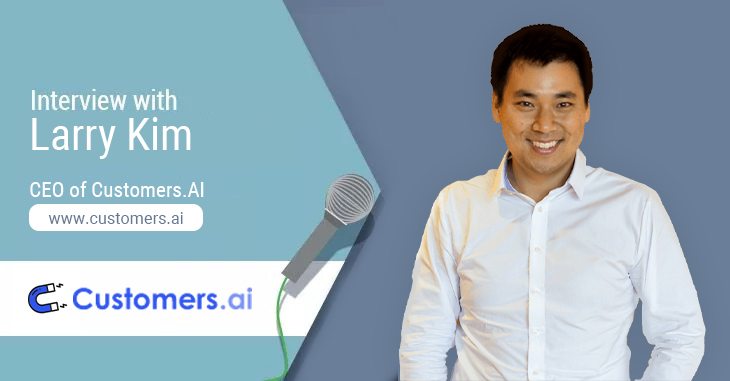Hello readers! In today’s interview, Jono Alderson answers questions we at TechWyse longed to ask!
Jono Alderson is a globally recognized expert having years of blended experience in digital strategy, SEO, analytics, martech, conversion rate optimization, WordPress, speed, growth and not to mention, an excellent keynote speaker. Jono is currently Special Ops at Yoast.com. In fact, he can be viewed as a bridge connecting the ‘big picture’ and technical details. Curious enough? Have a look at what Jono has to say.
Q: We had a sneak-peak of your story on joining Yoast.com. Could you share it with our readers?
A: Sure! I have a weird job, but I absolutely love it. I work partially remotely and manage our special projects; the kinds of things which don’t fit neatly into the normal day-to-day of the business. That’s a blend of R&D, working on our own sites and code, and making sure that we have a clear vision of where SEO is going. It’s a ton of fun, and it’s a perfect blend of development, technical SEO, and product strategy. I also attend and speak at a ton of conferences, too, to keep me at the cutting edge of the industry! Over the last few months, I’ve been focusing on scoping, launching and improving our schema implementation, which I’m extremely proud of. I’m lucky to be in a position where my efforts can improve a not-insignificant chunk of the web.
Q: Digital Strategist, Marketing Technologist, Full Stack Developer, Keynote Speaker. What if you had to choose between one?
A: Such a hard question! I love working with companies to solve their strategic challenges, get their architecture right, and educate their teams. But if I had to pick, well, I’m a developer at heart. I need to build things, to play with code, to solve technical problems. In the ‘real world’, I struggle to find creative outlets - I’m not great with spatial awareness, drawing, and so on. That’s really frustrating. When I open up a code editor, all of that changes. I can turn my ideas into real things. I think I’d struggle without that outlet!
Q: Being a futurologist, What potential do you see for virtual Assistants like Siri, Google Assistant and Alexa in the future? Are flying cars and robots closer than we think?
Sadly, I think we’re a long way off from jetpacks and robots! The social, moral and political challenges are still enormous and largely unanswered. However… I think we’re underestimating how close we are to virtual assistants really changing the world. Everybody’s obsessed with voice search, but that’s a distraction. The significant thing which is happening right now is that consumers are increasingly outsourcing their decision-making to external systems. When I say “Hey Siri, do [x] for me”, I’m no longer present or addressable in my research process, funnel or buying cycle. That has huge implications on how we market, advertise and reach consumers. How do you influence consumer preference, when the consumer isn’t there? That requires a different type of marketing and a different type of thinking.
Q: You have said that “Digital Marketing as we know it, is dead”. What do you think the new-age digital marketing would be? Who would survive!
A: I think that the ‘digital’ bit is a distraction which has lead to us perceiving and treating marketing as a machine with no consequences. We interrupt, annoy and trick a hundred people into coming to our slow, frustrating and clunky websites, in the hope that two or three of them might buy something. And we scale the hell out of that, with no consideration as to the impact of offending or alienating the ~98 people who didn’t buy. As more and more companies start to act like brands and rely less on just shouting into the void, that cost is going to become more and more apparent. We need to stop thinking about digital and start thinking about our audiences and consumers with a bit more respect. Because if we don’t, they’ll vote for convenience (and just go to Amazon), or vote for a brand (and stick with the companies who don’t just treat them like numbers in a system).
Q: Do you think startups and early-stage businesses can effectively use SEO to stand up against big brands? What advice would you give them?
A: They absolutely can. Many big brands are crippled and poisoned by their architecture, politics, and pace. Small businesses can be technically agile, can have an opinion on topically relevant content, and can reinvent themselves constantly. All big business can do is commission campaigns. Find the spots where consumers are bored or frustrated with big companies, and be different. Be better.
Q: Do you follow any routine for setting up the SEO side for new projects? How would you suggest the initial evaluation for technical projects should be?
A: It depends on the project; sometimes it’s about building a perfect site, sometimes it’s about fixing a particular bug or issue. The tools vary depending on the challenge, but there’s typically some kind of crawling, time rummaging around in Google Search Console, and lots-and-lots of time spent looking at code and server responses. One of the most under-rated processes is just looking at what’s indexed in Google (and what’s not). That’ll tell you a lot about your current health.
Q: You are an amazing keynote speaker. How important would you say live networking is for business? How did that work for you?
A: Speaking at conferences is the main way that I learn new things, and how I make sure that I’m at the top of my game. The pressure to deliver a great talk means that I need to know my subject inside-out, and that keeps me sharp. I know that’s the same for a lot of other speakers, so networking at these kinds of events exposes you to some of the sharpest, highest level thinking on the topics of the day. I learn more from spending a few hours chatting with other speakers than I’d pick up in a month of reading and DIY’ing.
Q: What is your view on the current SEO environment? What excites you and what doesn't?
A: I think we’re at risk of stagnation. I think that, on the whole, we’re still too obsessed with link counts, rankings, and tactical hacks. Sure, links influence rankings, and we need tactics to get them. And helping a product/brand/page to get coverage, purely on its own merits, is hard and getting harder. And brands still often provide their agencies or employees with link targets. But I think that we can be so much more if we just give ourselves permission. It makes me deeply sad to see so very few SEO practitioners talking about how they worked to help a brand ‘deserve to be discovered’, rather than just talking about how many links their latest content marketing campaign got. The objective has never been to get lots of links, it’s been to grow brands. So I’m excited about a future where the industry more commonly adds real value, rather than just acquiring greater and greater numbers of unnatural links to product pages.
TechWyse is a leading digital marketing agency based in Toronto, Canada. We’re Canada’s SEO and lead generation experts. If you would like to learn how your company could be generating more leads online, call TechWyse today at 866.208.3095 or contact us here.






